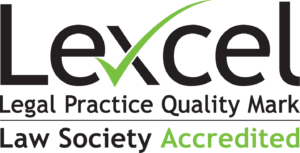Category: Press releases, Commercial, Corporate & commercial
A strong ‘brand’ or ‘trade mark’ helps to distinguish a business’s products from its competitors. A brand can take many forms – it can be a word (eg Kodak), a logo (eg the multi-coloured wording of ‘eBay’) or even a name (eg James Bond).
If you are developing a brand for your business, you should consider the following:
- Get legal advice at an early stage so that you can ensure that whatever you create can be protected and that it does not infringe another person’s trade mark or other rights.
- Carry out searches on the internet and relevant trade press to check that the brand is not already being used by another entity. Instruct a lawyer or trade mark attorney to conduct a search of your proposed trade mark, if necessary.
- Take great care when third parties are involved in creating a brand, eg advertising agencies, brand consultants etc. Make sure that they transfer all intellectual property rights in their work to your business.
- Keep accurate records of the development process and date these documents. This will provide evidence if any infringement claim is ever brought against your company.
You can commercially exploit your brand in a number of ways. The main methods are by ‘licence’ or ‘assignment’:
- A licence is an agreement that gives another business the right to use your brand for a specified period of time, usually in a defined territory eg the UK. Once that period of time has expired the ownership and control of the brand returns to you as the brand owner.
- An assignment is an agreement that sells a brand to another business. You lose control of the brand but you receive an up-front monetary payment in return.
Always take legal advice before allowing a third party to use your business’ brand. You should ensure that:
- you sign a written agreement governing use of your brand if you are considering entering into any arrangements with a third party; and
- you put brand guidelines in place to govern the use of your brand by other parties (eg franchisees, distributors etc.) and strictly enforce these guidelines.
Theresa Grech is a partner in our company commercial department and has a specialism in intellectual property. She advises on all issues relating to trade mark, copyright and patent protection, in particular drafting and negotiating patent, copyright and trade mark assignments and licences. Theresa also advises on data protection, e-commerce and internet related issues. She is praised by clients for delivering an “excellent service” and providing “good solid advice”.
Disclaimer: All legal information is correct at the time of publication but please be aware that laws may change over time. This article contains general legal information but should not be relied upon as legal advice. Please seek professional legal advice about your specific situation - contact us; we’d be delighted to help.











